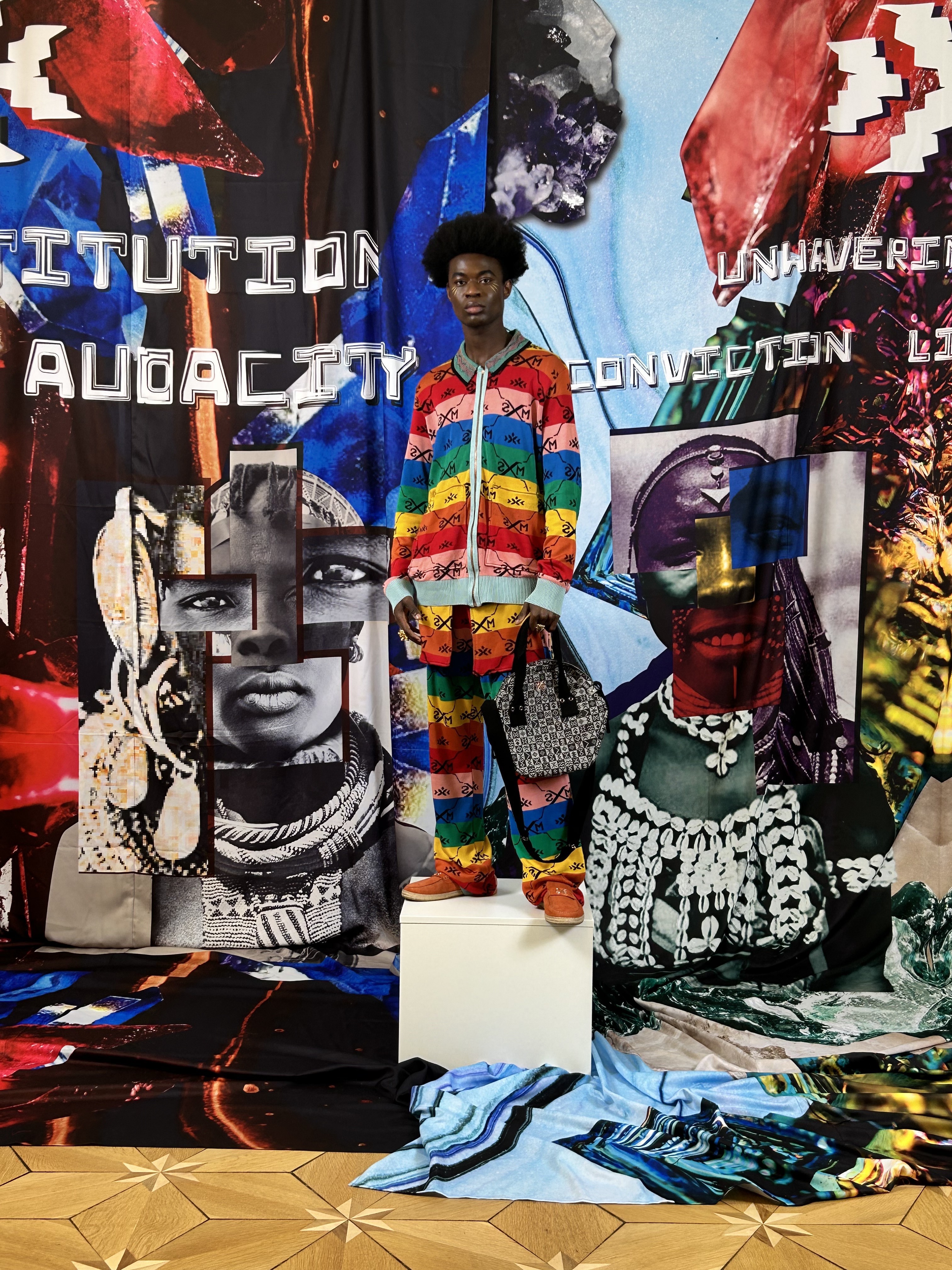A Cloak of Discrimination

Paris, renowned worldwide as the epicenter of fashion and style, often lauded for its innovation and trendsetting designs, stands accused of a troubling trend: the marginalization of Black and African fashion within its Haute Couture landscape. Despite Paris's reputation as a global fashion capital, voices within the industry are increasingly calling attention to the systemic discrimination faced by Black and African designers, hindering their recognition and success in the fashion world.
In a recent report by the Fashion Diversity Coalition, it was revealed that only a minuscule fraction of fashion brands showcased during Paris Fashion Week are owned or operated by individuals of African or Black descent. Despite their rich cultural heritage and undeniable talent, these designers often find themselves relegated to the fringes of the fashion scene, struggling for visibility and acceptance. The disparity in representation extends beyond the runway to fashion publications and prestigious boutiques, where Black and African designs are notably absent or underrepresented. This lack of exposure not only stifles the creativity and innovation of these designers but also perpetuates harmful stereotypes and biases within the industry. The issue of cultural appropriation further compounds the challenges faced by Black and African designers. While elements of African culture are frequently co-opted by mainstream fashion houses for profit, the original creators are often overlooked or dismissed. This exploitation not only diminishes the significance of these cultural symbols but also reinforces power imbalances within the industry.
In contrast, when Black and African designers attempt to reclaim their cultural heritage through fashion, they are often met with scepticism or accused of pandering to niche markets. This double standard highlights the systemic biases that continue to plague the fashion world, where Eurocentric norms remain the benchmark for success. Amidst growing awareness of these issues, there have been calls for greater inclusivity and representation within the fashion industry. Organizations such as the Black Fashion Council and the African Fashion Foundation are working tirelessly to amplify the voices of Black and African designers, advocating for equal opportunities and recognition on the global stage.
Furthermore, there is a growing movement among consumers to support ethical and diverse fashion brands, challenging the traditional power dynamics of the industry. Social media platforms have become powerful tools for amplifying marginalized voices and holding fashion brands accountable for their practices. Against this backdrop, Black Fashion Week emerged as a platform dedicated to showcasing the talent and creativity of Black and African designers. Founded by Senegalese fashion designer Adama Ndiaye, founder of French label Adama Paris, the event aims to challenge the status quo and provide a space for marginalized voices to be heard. Since its inception in 2012, it has become a beacon of hope for many aspiring designers, offering them a platform to showcase their collections to a global audience.
To address the systemic racial bias that is implicit on social media, Fashion Communication students at the American University of Paris, Lesego Tlhabi and Naydeline Mejia co-founded a street style collective dedicated to showcasing and celebrating black fashion and style in the city. A first of its kind and a much-needed push towards redefining the fashion landscape and addressing the systemic bias found on social media. The bias in the people which led to little to no representation of black people on fashion street style pages in Paris, and the bias set up in the algorithm that hides or pushes down black creators, influencers and fashion.
Speaking to this issue, fashion industry insiders cite a variety of factors contributing to the marginalization of Black and African fashion in Paris. Structural barriers, including limited access to resources and opportunities for mentorship, hinder the growth and success of Black and African designers. Additionally, implicit biases within the industry perpetuate the notion that certain styles and perspectives are more "marketable" or "sophisticated" than others, further marginalizing diverse voices. Moreover, unequal treatment in the workplace, cultural appropriation, and stereotyping means that these designers must navigate a landscape rife with obstacles and prejudices. As a result, many talented individuals find themselves overlooked or excluded from the opportunities afforded to their white counterparts.
Despite these challenges, there are signs of progress and resistance within the industry. Organizations such as the Black Fashion Council and the African Fashion Foundation are working tirelessly to promote diversity and inclusion within fashion, advocating for greater representation of Black and African designers on the global stage. Furthermore, grassroots movements and social media campaigns are slowly amplifying the voices of underrepresented designers, challenging the status quo and demanding change. Through collective action and solidarity, advocates hope to dismantle the systemic barriers that perpetuate the marginalization of Black and African fashion in Paris and beyond.
As Paris continues to grapple with its legacy of colonialism and systemic racism, the marginalization of Black and African fashion serves as a stark reminder of the work that remains to be done. True progress will require a concerted effort from all stakeholders within the industry – from designers and retailers to consumers and policymakers. By embracing diversity and dismantling entrenched biases, Paris can reclaim its position as a beacon of creativity and innovation in the fashion world. Until then, the marginalization of Black and African fashion will remain a stain on the legacy of Parisian style.





